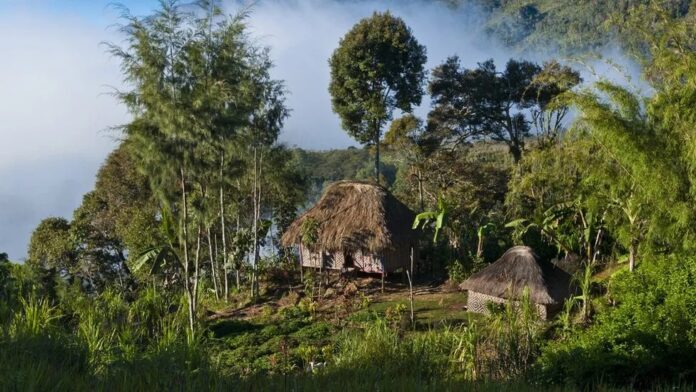The remote Highlands region of Papua New Guinea has seen a tragic ambush that has resulted in the deaths of at least 53 people.
This violence occurred during a tribal dispute in the Enga Province over the weekend, according to a national police spokesman who spoke with the BBC. Authorities are anticipating the death toll to rise as a result of this deadly conflict.
The Highlands area has a long history of struggling with violence, but these recent killings are believed to be the worst in years. Police are currently working to collect bodies at the scene near the town of Wabag, which is approximately 600km northwest of the capital Port Moresby. Royal Papua New Guinea Constabulary Acting Supt George Kakas described this tragedy as “by far the largest [killing] I’ve seen in Enga, maybe in all of Highlands as well,” conveying the widespread devastation and distress this event has caused.
Tribal conflict in the region, often related to disputes over land and wealth distribution, has been escalating in recent years. This has led to a three-month lockdown in Enga Province last July, during which police imposed a curfew and travel restrictions. The influx of illegal firearms has made clashes more deadly, perpetuating the cycle of violence and further exacerbating the situation.
Governor Peter Ipatas expressed that signs of an impending outbreak of fighting were evident ahead of the ambush, highlighting the necessity for appropriate action to prevent such occurrences. This reflects the ongoing challenge of ensuring security and stability in the region.
Furthermore, the government of Papua New Guinea recently declared a state of emergency after widespread rioting and looting resulted in at least 15 deaths. In response to these events, Australia – one of the country’s closest allies – has offered considerable support, particularly in training police officers and bolstering security measures.
The tragic events in the Highlands region underscore the urgent need for efforts to address longstanding grievances and promote reconciliation. As these communities continue to grapple with the aftermath of this deadly clash, the importance of international support and collaborative strategies for sustainable peace and security in the region becomes increasingly apparent.

